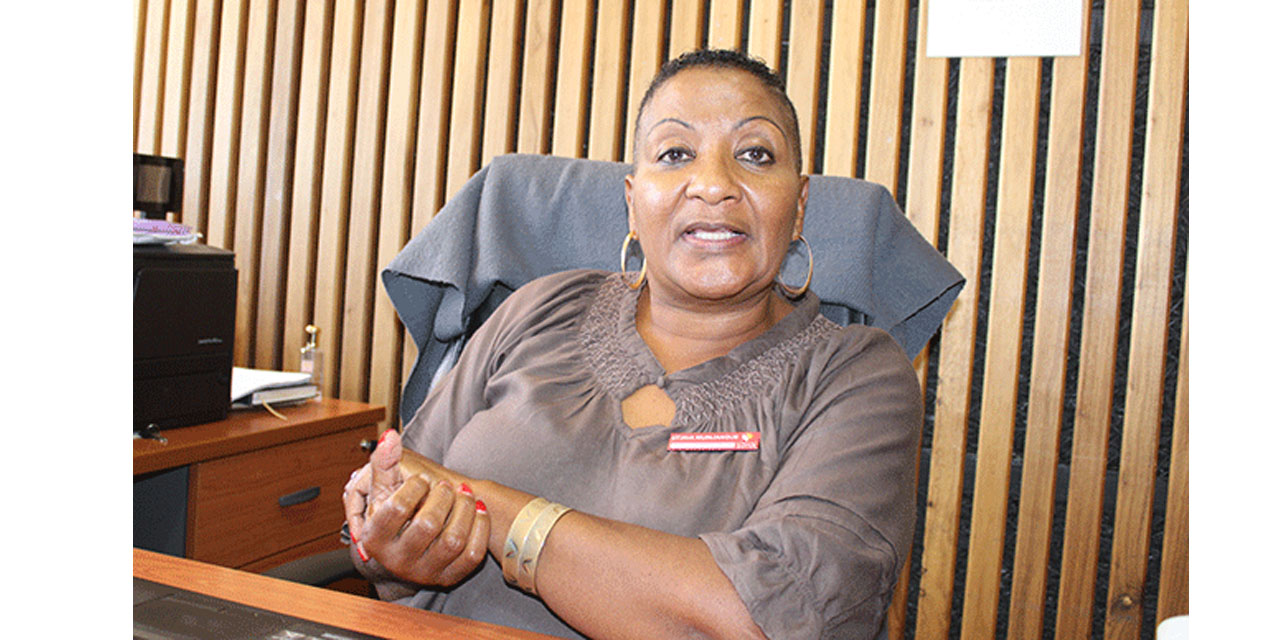Tujoromajo Kasuto
Ministry of Health and Social Services is calling on parents to break with cultural norms of not discussing sexual reproductive issues with children.
Parents, the ministry says should start guide and advise their children on how to overcome the transitional period from childhood to adulthood as well as discussing family planning.
The Deputy Minister Ester Muinjangue says that it is important to note that counseling and Sexual Reproductive Health and Family Planning services do not encourage young people to have sex, but instead, they help them to protect their health as access to information and contraceptives can protect young people’s lives.
Additionally, she says, that male involvement in Family Planning and contraceptive services is important and because of their influence over women, their attitudes can determine whether the woman practices healthy behavior, takes up a certain Family Planning method, or adheres to the contraceptive regimen.
Notably, couples who discuss their Family Planning needs are more likely to carry out their intentions, she adds.
“Men are also important as clients since they use condoms and may want to undergo vasectomy. Furthermore, men also have their own SRH needs and concerns for which they need the attention of the health care system,” states Muinjangue.
Furthermore, benefits to health and the quality of life are the prevention of unintended pregnancies, reduced risk of Maternal Mortality, improved health for mothers and children, improved life options for women, easing the burden on schools, reduced pressures on the environment and public services.
According to the Ministry pregnancy- and childbirth-related complications are the number one killers of girls aged 15 to 19 in developing countries, as well as in Namibia.
In Namibia, contraceptive use among young people aged 15 to 19 is relatively low at 24 percent, while teenage pregnancy remains high at 19 percent.
Family planning refers to a conscious effort to limit or space the number of children families want to have through the use of contraceptives and knowledge of contraception.
Family planning allows couples to delay, space, or limit pregnancies, hence preventing unintended pregnancies, unsafe abortion, and pregnancy-related risks.
This ultimately efficiently reduces maternal and infant mortality and consequently contributes to the achievement of Goal 3 of the Sustainable Development Goals (SDG) to which Namibia is a signatory.
Ultimately, Family Planning has an inherent potential to reduce poverty considering that investments in contraception translate to economic growth and development.
The World Health Organization (WHO) recommends delaying first pregnancy until at least 18 years of age; spacing pregnancies by at least 24 months between births; and waiting for at least 6 months after an abortion or miscarriage before getting pregnant again.
Meanwhile, according to the 2013 Namibia Demographic and Health Survey (DHS) the total fertility rate in Namibia is 3.6 children per woman, a decline from 5.6 reported in 1992.
Knowledge of contraception is universal in Namibia with nearly all women and men (99.6 percent of women and 99.7 percent of men) having heard of at least one method.
Individuals and couples in Namibia also have the right to determine whether, when, the number, and how often to have children as stipulated in the National Policy on Sexual, Reproductive and Child Health.
In Namibia, Family Planning services are offered at all public health facilities free of charge. It is recommended that Family Planning services be provided at outreach points, clinics, health centers, hospital casualty departments, outpatient departments and maternity wards.
The method mix at different levels of health service provision varies depending on the health system support, infrastructure and health workers assigned to that health service delivery level. In this regard, counseling, male & female condoms, pills, and injectable contraceptives (DMPA) are provided in all health facilities including outreach.
Hospitals provide the full contraceptive method mix including male and female sterilization. At the household level, community health workers are allowed to distribute condoms and provide health education on the importance and availability of family planning in the health facilities.




